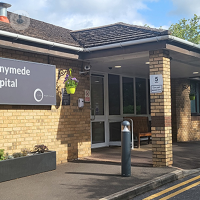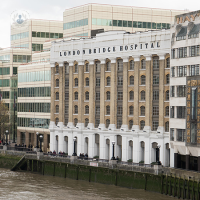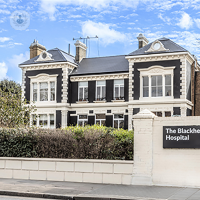Blood in stool (rectal bleeding)
Mr Emin Carapeti - Colorectal surgery
Created on: 01-23-2019
Updated on: 08-01-2023
Edited by: Conor Lynch
What is rectal bleeding (blood in stool)?
Rectal bleeding simply refers to bleeding from one's bottom after the passing of a stool.

What might rectal bleeding signal?
Blood in your stool can signal that there is an issue somewhere along the gastrointestinal tract, and is most commonly a sign of non-cancerous conditions such as:
- crohn's disease
- ulcerative colitis
- haemorrhoids
- anal fissure
- colon polyps
However, it can also be a symptom of bowel or rectal cancer.
In what ways can rectal bleeding be noticed?
Blood in your stool can typically be noticed in the following scenarios:
- you may see it mixed in with your stool - whether that be diarrhoea or hard and dry stool
- light bleeding you find on your toilet paper
- enough drops of blood to change the colour of the water in your toilet bowl
- it can make your stool black and sticky
What are the causes of rectal bleeding?
Usually, it’s caused by non-cancerous conditions and isn’t a cause for worry. However, visiting a doctor is necessary to rule out more serious conditions.
Which specialist should I see for rectal bleeding?
Gastroenterologists are experts when it comes to diagnosing the exact cause of rectal bleeding. Once they determine the cause, they can recommend the most appropriate and effective treatment option(s).
When should I see a doctor for rectal bleeding?
Patients are highly recommended to see a doctor if they notice any of the following:
- their child has blood in their stool
- the patient has had blood in their stool for three weeks
- their stool has been softer, thinner, or longer than normal for three weeks
- they experience extreme pain around the anus
- they notice pain or a lump in the stomach
- they have lost weight without a reason
When is rectal bleeding considered a medical emergency?
Rectal bleeding should be treated as promptly as possible in the following situations:
- when the patient's stool is black or dark red
- when the patient notices bloody diarrhoea for no apparant reason

What will happen during my visit to a doctor for rectal bleeding?
Patients, before being referred to gastroenterologists, will typically be seen by a GP. During this consultation, a rectal examination will be performed, a stool sample will be requested, collected and hereafter examined, and, finally, the patient will be referred to a gastroenterologist for further testing.
What tests are usually performed to find out the cause of rectal bleeding?
Gastroenterologists will typically perform either a colonoscopy or a sigmoidoscopy to detect the exact cause of the symptom(s) associated with the patient's rectal bleeding.
How is rectal bleeding treated?
Treatment for rectal bleeding really depends on the underlying cause that has been detected. Almost in all cases though, treatment will involve medication, surgery, and/or lifestyle modifications.
What are the different types of rectal surgery that might be performed?
If haemorrhoids are causing one's rectal bleeding, then a haemorrhoidectomy will be performed. Other common types of rectal surgical procedures include a subtotal colectomy, a right hemicolectomy, a left hemicolectomy, a low anterior resection, and an abdomino-perineal resection.

















